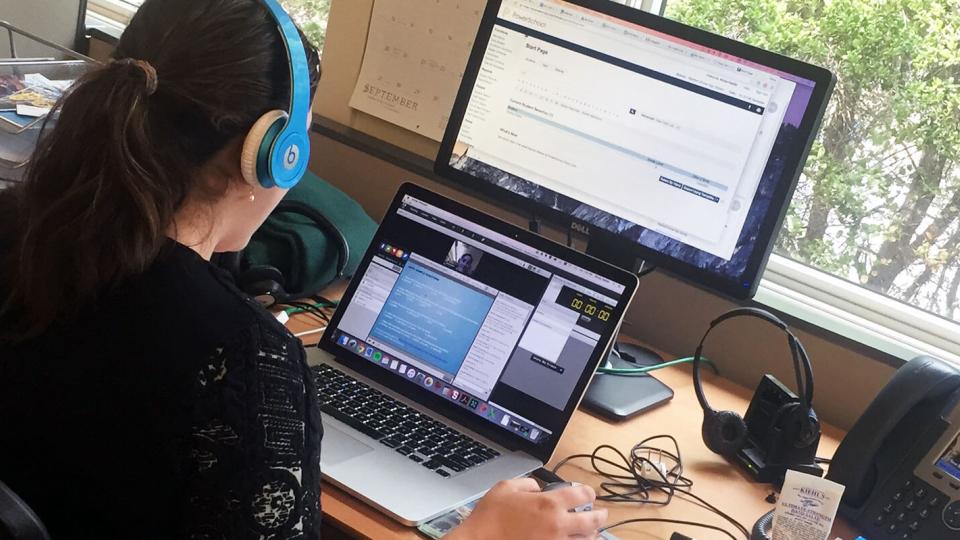I think that the most effective classes are ones where there is a mix between freedom and control/structure. Students are free to make (polite) jokes and enjoy themselves, but don't totally derail the whole discussion.
Aidan B.
Equipment Essentials

- Functional microphone
- Functional camera
- Charged computer
- A quiet space
Best Practices for Students in Online Classrooms
- Prepare the materials you need before class starts (textbook, readings, notebook, computer charger, check wifi/router connection, etc.) Keep a notebook or computer document open to easily take notes during class
- Set yourself up for success: Make sure you’re taking class in a position that allows you to focus. For example, taking class at a desk sitting upright in a chair will probably allow you to focus and work better than taking class in a beanbag, on a couch, or in bed.
- Check your lighting. Make sure that your lighting is good, backlighting generally will make your face shadowy, whereas front-lighting will make allow your classmates to see your face brightly lit.
- Test class software: Make sure you are familiar with the class software before you begin a class. For example, in Zoom, your microphone is turned on by default. This can lead to unfortunate scenarios. Approach the software with caution until you assess what you need to turn off or enable.
- Use headphones: Headphones are not essential, but the microphone on headphones is usually better and reduces potential echo.
- Take screenshots of slides with important information, images, or things you can’t write down quickly enough, so you can go back and reference them
- Keep classroom platform open – don’t switch to other tabs/windows (except notes) because it’s easy to lose track of class
- Put your cell phone away so you aren’t distracted or tempted by it.
- Engage with the teachers and classmates in class as much as the technology and class structure allow:
- Talking on mic is best, but participating in text chat is also good. It’s easy to zone out in class, easier still in an online classroom, engaging in the conversation (while not only a good way to get participation points) helps you to stay focused on learning the material.
- While asking questions in the text chat can be good, sometimes the teacher might miss them, so the best bet for getting your questions answered is asking on mic.
- Take adequate computer breaks: Give yourself structured time outside of classes that is away from your computer!
Students and teachers need to be prepared for how their daily schedules will change. It probably won't be exactly the same every day (and shouldn't be) but take don't be afraid to figure out what works best and make those changes. Flexibility is really important when you're doing school online!




